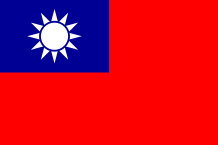 The Ministry of Health and Welfare (MOHW) is the government ministry responsible for Taiwan medical device regulations. The MOHW has a broad mandate to improve the quality of health care, prevent and control infectious diseases, ensure food and drug safety, and facilitate technological development. In January 2010, the Bureau of Food Safety, the Bureau of Pharmaceutical Affairs, the Bureau of Food and Drug Analysis, and the Bureau of Controlled Drugs were consolidated into the Taiwan Food and Drug Administration (TFDA). The TFDA has been organized under the MOHW. The TFDA is tasked with ensuring that medical devices meet the country’s safety regulations.
The Ministry of Health and Welfare (MOHW) is the government ministry responsible for Taiwan medical device regulations. The MOHW has a broad mandate to improve the quality of health care, prevent and control infectious diseases, ensure food and drug safety, and facilitate technological development. In January 2010, the Bureau of Food Safety, the Bureau of Pharmaceutical Affairs, the Bureau of Food and Drug Analysis, and the Bureau of Controlled Drugs were consolidated into the Taiwan Food and Drug Administration (TFDA). The TFDA has been organized under the MOHW. The TFDA is tasked with ensuring that medical devices meet the country’s safety regulations.
Taiwan Food and Drug Administration
The TFDA is divided into various divisions that are responsible for food, medicine, controlled drugs, and medical devices. The Division of Medical Devices and Cosmetics supervises medical devices and its responsibilities include:
- Reviewing medical device registration and licensing
- Evaluating the safety and performance of medical devices
- Reviewing results of medical device clinical trials
- Drafting and updating policies, rules, and regulations that affect medical devices
The Division of Risk Management also has an important role in regulating medical devices in Taiwan. This division enforces Good Manufacturing Practice (GMP) inspections for medical device manufacturers.
Although Taiwan is a relatively small country, the TFDA has also divided the island into three separate regional administrations. The Northern, Central, and Southern Centers for Regional Administration are responsible for:
- Port-of-entry inspection and laboratory testing for medical devices
- Managing post-marketing inspection and testing
- Assisting local health authorities in related inspections and consumer protection
Pharmaceutical Affairs Law
The Pharmaceutical Affairs Law (PAL) regulates the manufacturing, importation, and sale of medical devices and pharmaceuticals in Taiwan. The PAL also establishes basic requirements regarding the packaging, labeling, and sale of medical devices. Under PAL, the TFDA issues registration certificates while the MOHW performs on-site inspections for managers. The MOHW also ensures that manufacturers comply with existing Quality Systems Documentation.
Taiwan’s Good Manufacturing Practice
Taiwan has adopted its own Good Manufacturing Practice (GMP) that is based on ISO 13845 standards. GMP approval is contingent on a successful on-site inspection carried out by a government authorized organization. GMP approval letters are valid for three years.
Taiwan also implemented a Quality System Documentation (QSD) process in 1999. Both QSD and GMP approvals must be received before an importer or manufacturer can begin the registration process in Taiwan.
For more detailed information about registration requirements and the regulatory process for medical devices in Taiwan, please contact us.
